Manage Your Workflow, Boost Your Efficiency
It combines project, task, and request management in a single platform to help teams work more efficiently and in a more organized way.
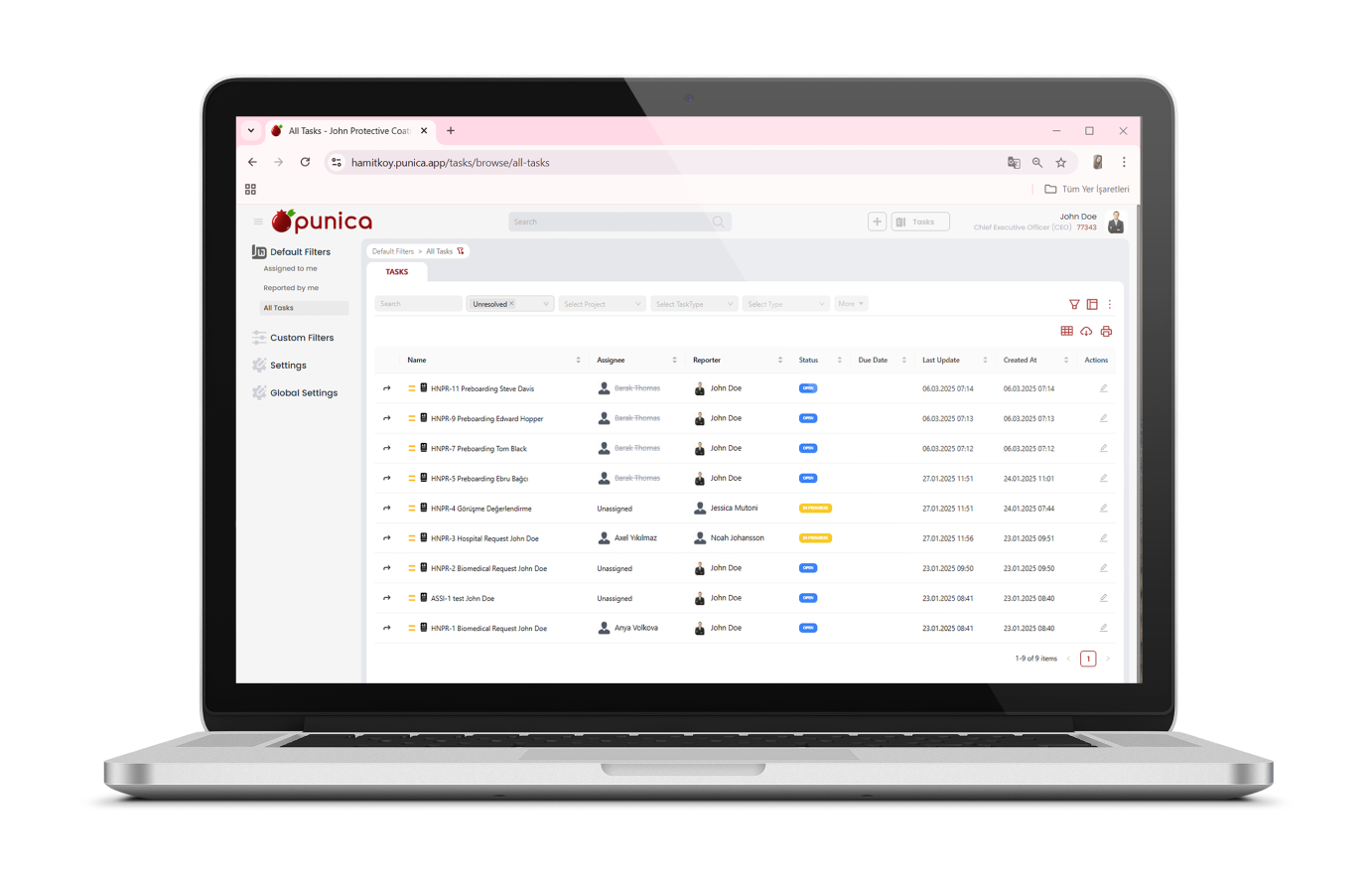
What is Punica Tasks?
It is a powerful tool designed to bring together task management, project management, and request management in a single, centralized platform. By offering businesses and their teams a more efficient and organized working environment, it simplifies and optimizes business processes.
Features
While each Punica application offers distinct features, they all share centralised data management, seamless integration, remote accessibility, and advanced analytics.
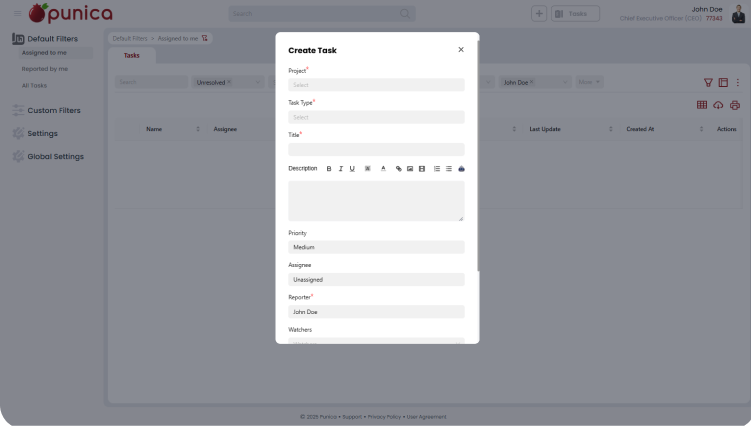
Creating Projects & Tasks
Organize your work quickly. With the project and tasks creation feature, easily start any kind of project or task and manage the process efficiently.
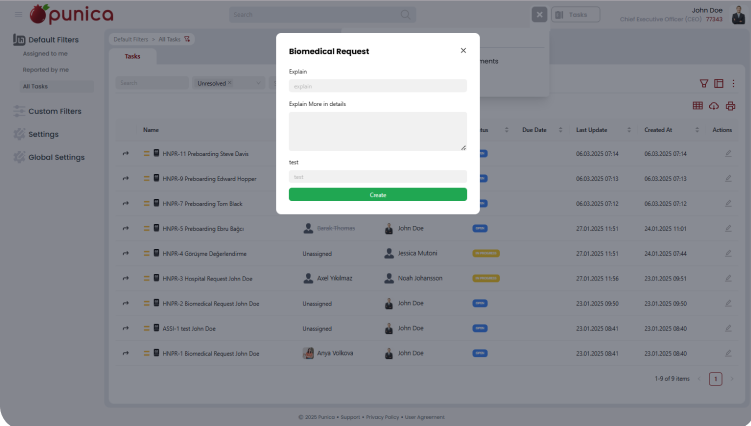
Creating a Request
Create all your business-related requests from a single point. Easily track your requests in areas such as procurement, maintenance & repair,...
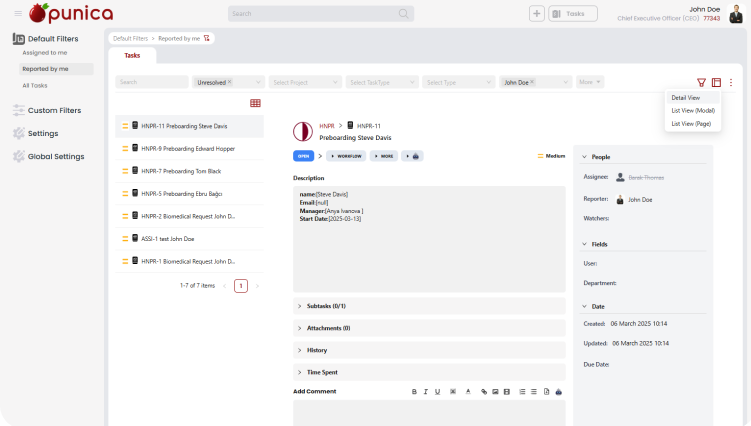
Streamlined Business Process Tracking
Easily track all your business processes, projects, and tasks from a single platform...
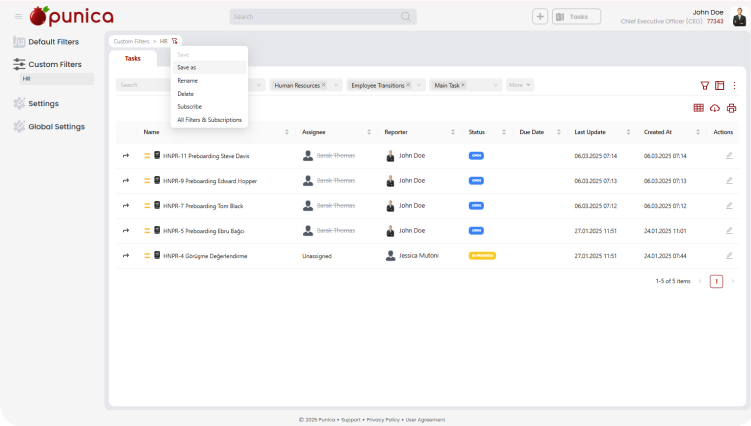
Custom Filters
Track and manage your business processes with flexible filtering options. With Custom Filters, frequently used projects and tasks can be...
Efficient Tracking with Email Subscriptions
Create subscriptions for tasks included in your custom filters and receive email notifications...
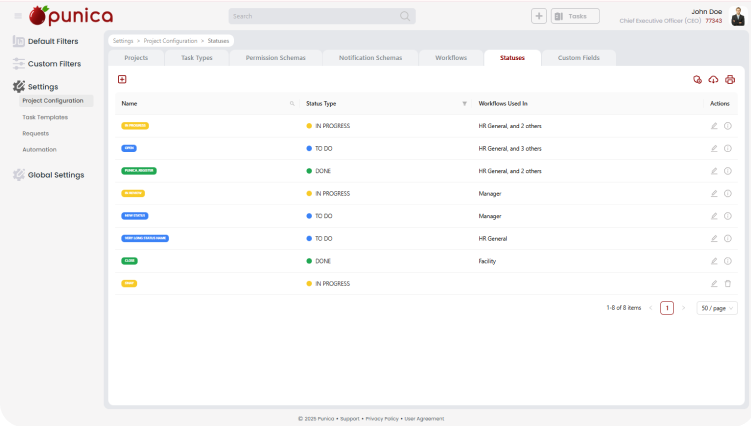
Full Control, Flexibility
From project and task settings to workflows, notification, and authorization schemes, everything is under your control. With its organized yet...
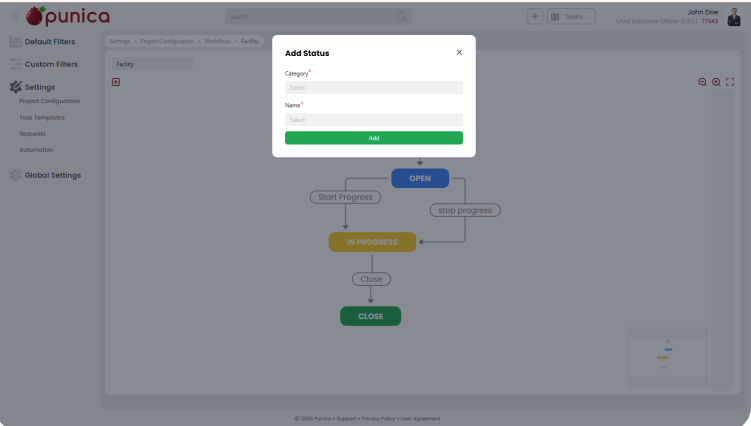
Workflows
Workflows refer to the stages a task or request goes through from the moment it is created until it is completed. Each stage in the process can...

